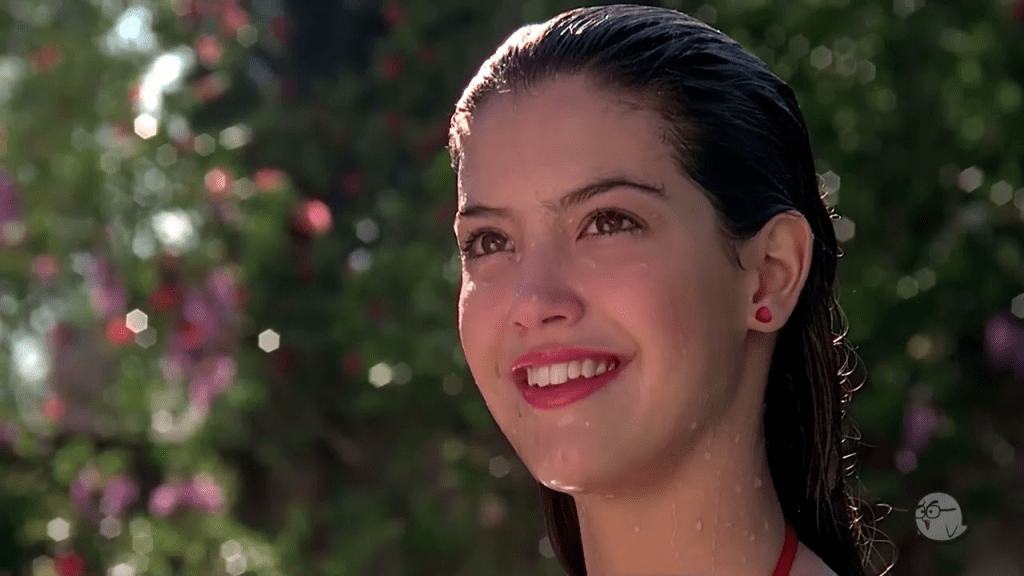
Phoebe Cates became a cultural icon through her role as Linda Barrett in the 1982 classic Fast Times at Ridgemont High. Directed by Amy Heckerling and written by Cameron Crowe, the film captured the essence of teenage life in the early 1980s, and Cates’ performance was central to its success. This article explores how Phoebe Cates brought Linda Barrett to life, the impact of her portrayal, and the character’s lasting legacy in pop culture.
Fast Times at Ridgemont High was more than just a comedy; it was a groundbreaking depiction of teenage life. Based on Cameron Crowe’s real-life observations, the film delved into themes of friendship, relationships, and self-discovery. Its ensemble cast included rising stars like Sean Penn, Jennifer Jason Leigh, and Phoebe Cates, each of whom brought depth and relatability to their characters.
Phoebe Cates’ Linda Barrett stood out as one of the most memorable characters in the film. Her confidence, charisma, and complexity made her an integral part of the story and a fan favorite.
Linda Barrett was the epitome of confidence and sophistication, serving as a mentor to the younger Stacy Hamilton. While she exuded maturity and poise, Linda’s character was also layered with insecurities and moments of self-reflection. This combination of traits made her a compelling and relatable figure in the narrative.
Phoebe Cates excelled in portraying Linda’s multifaceted personality. Her performance struck a balance between Linda’s outward confidence and her inner vulnerability, making the character more than just a stereotypical teenage girl. Cates’ nuanced approach brought depth to Linda, elevating her from a supporting role to a standout presence in the film.
Phoebe Cates’ portrayal of Linda Barrett is perhaps best remembered for the now-iconic pool scene. While this moment became a pop culture phenomenon, it was Cates’ overall performance that made Linda a well-rounded and unforgettable character. Her ability to convey a range of emotions, from playful confidence to heartfelt sincerity, ensured that Linda resonated with audiences long after the credits rolled.

Beyond the pool scene, Linda’s interactions with Stacy Hamilton provided some of the film’s most meaningful moments. As Stacy’s friend and confidante, Linda offered advice and support, though her own vulnerabilities often emerged in these exchanges. These interactions highlighted the complexities of teenage friendships and added depth to both characters.
Phoebe Cates’ work in Fast Times at Ridgemont High helped to redefine the coming-of-age genre. Her portrayal of Linda Barrett showcased the challenges and triumphs of adolescence with authenticity and charm. In doing so, she set a standard for future portrayals of teenage characters in film and television.
The success of Fast Times at Ridgemont High also paved the way for more nuanced and relatable depictions of young women in media. Linda Barrett’s character, brought to life by Cates, remains a benchmark for the genre, inspiring countless filmmakers and performers.

Following her breakout role in Fast Times at Ridgemont High, Phoebe Cates enjoyed a successful career in Hollywood. She starred in several notable films, including Gremlins and its sequel, showcasing her versatility as an actress. Despite stepping away from acting in the 1990s, Cates’ influence on cinema continues to be celebrated.
Her work in Fast Times at Ridgemont High remains a defining moment in her career, highlighting her ability to bring depth and relatability to her characters.

Linda Barrett’s impact on pop culture is undeniable. Decades after the release of Fast Times at Ridgemont High, Phoebe Cates’ portrayal continues to resonate with audiences. Linda’s confidence, complexity, and relatability make her a timeless character, and Cates’ performance remains one of the most iconic of the 1980s.
Phoebe Cates’ role in Fast Times at Ridgemont High is a testament to her talent and charisma as an actress. Through her portrayal of Linda Barrett, she captured the essence of teenage life and helped to define a generation. Her work on the film serves as a lasting reminder of the power of authentic storytelling and unforgettable performances.